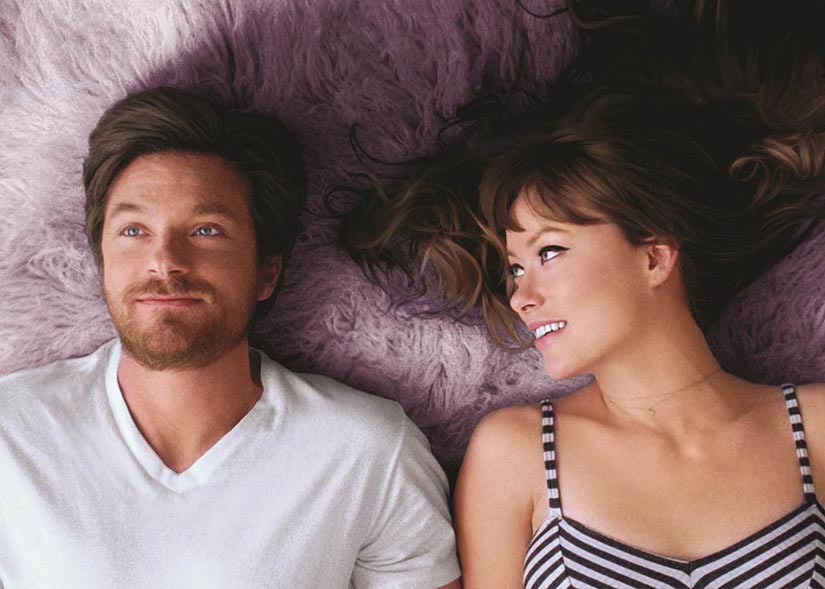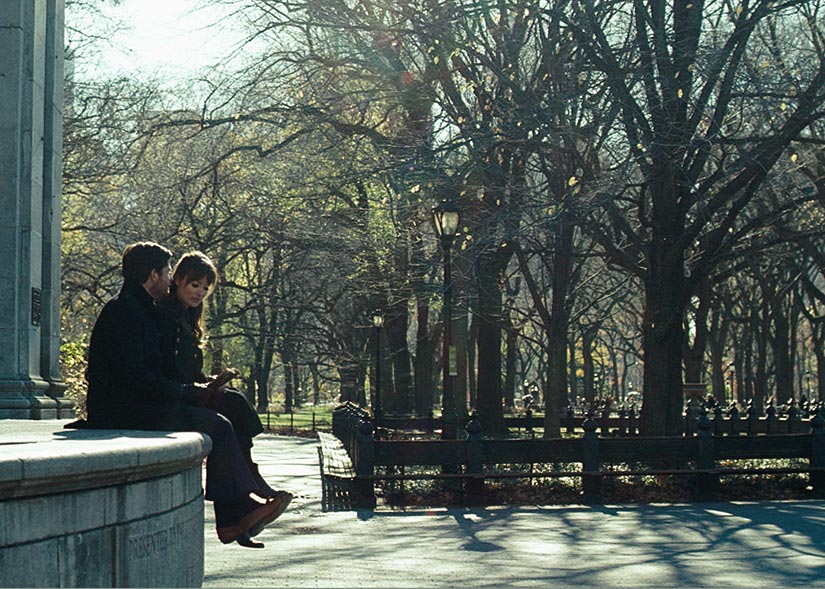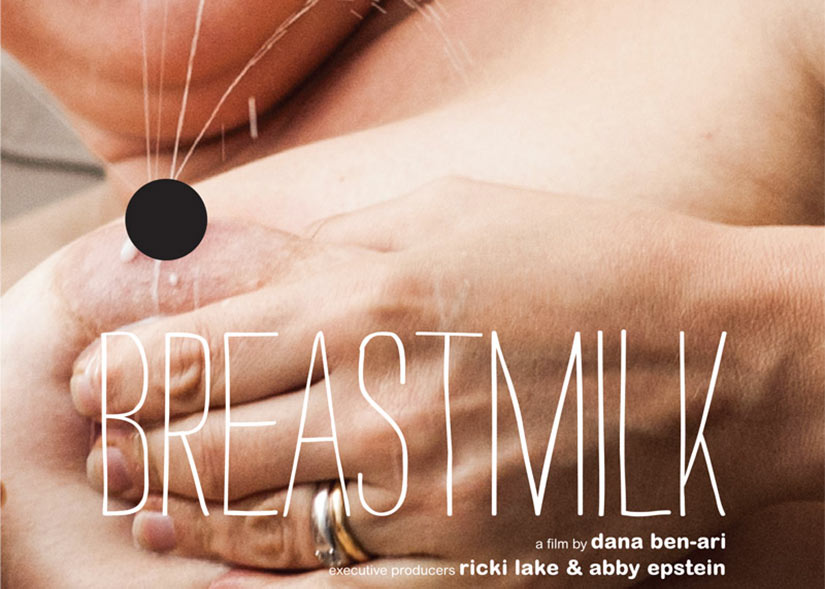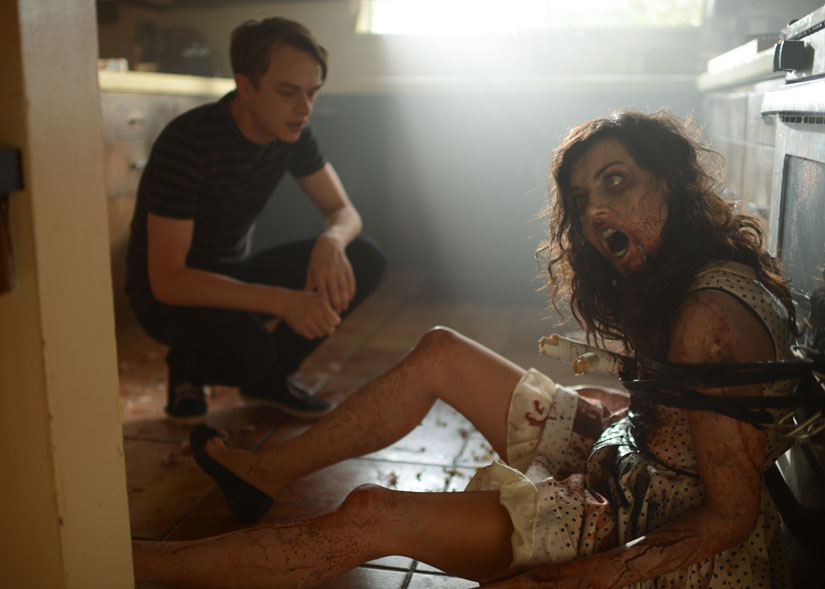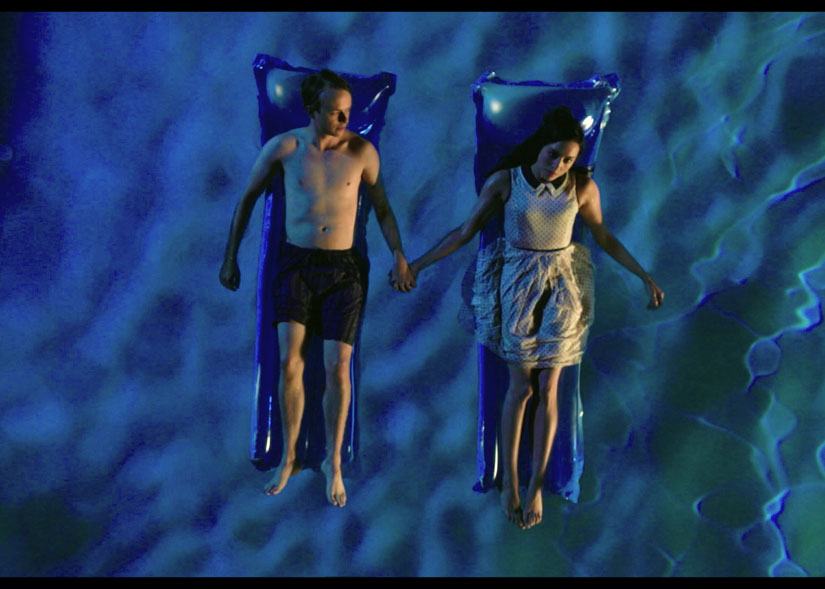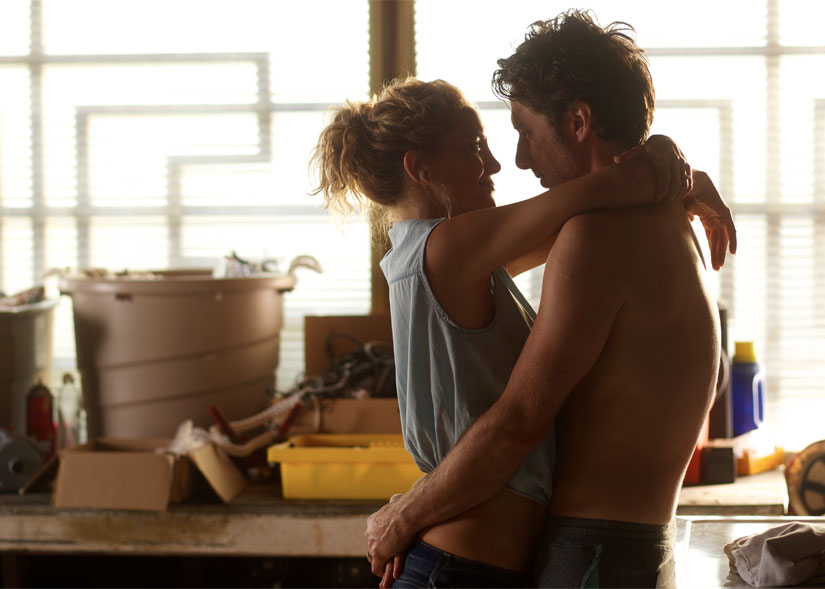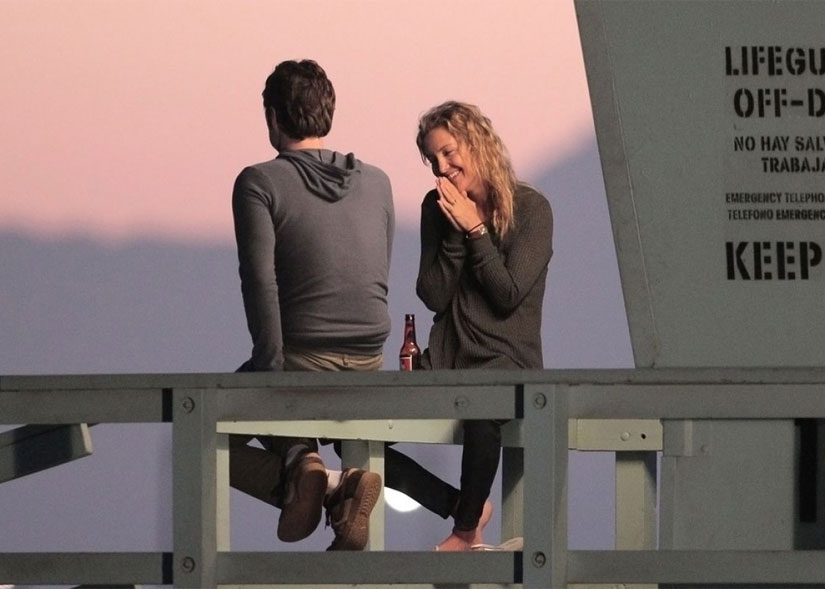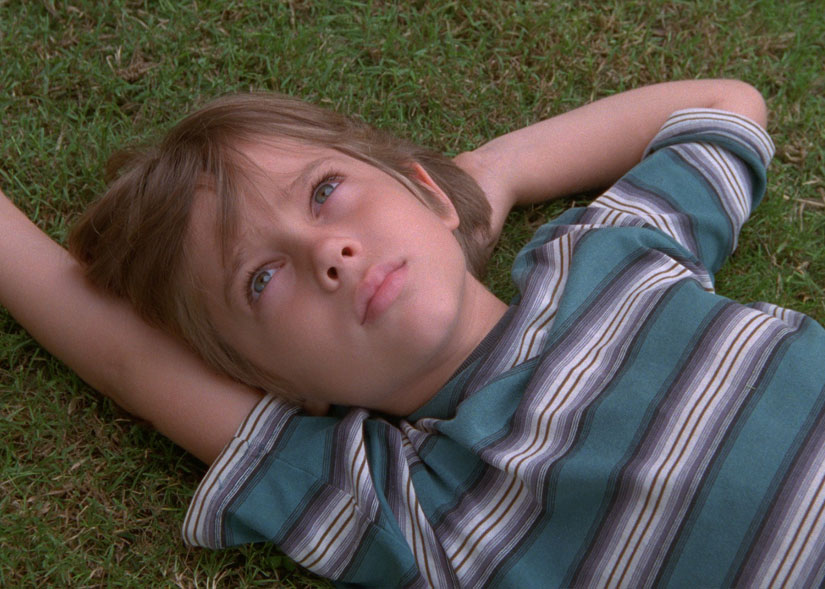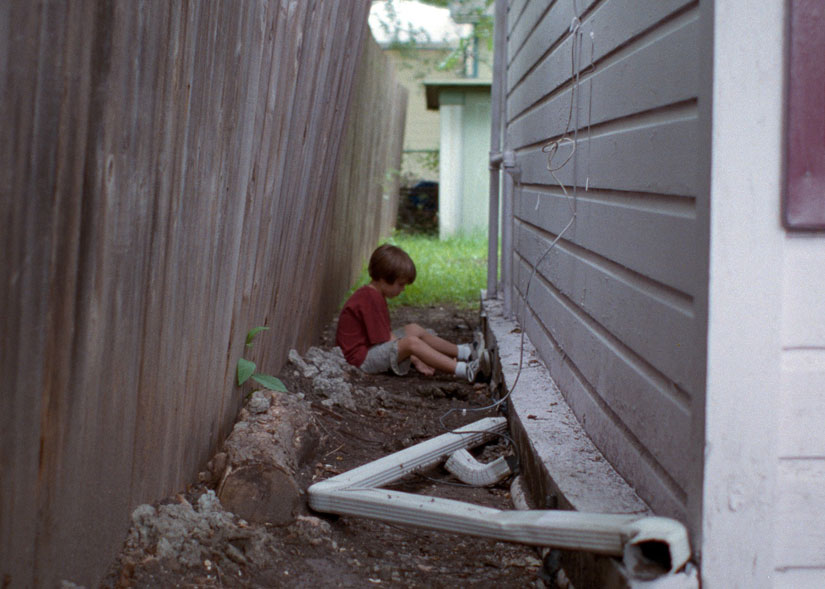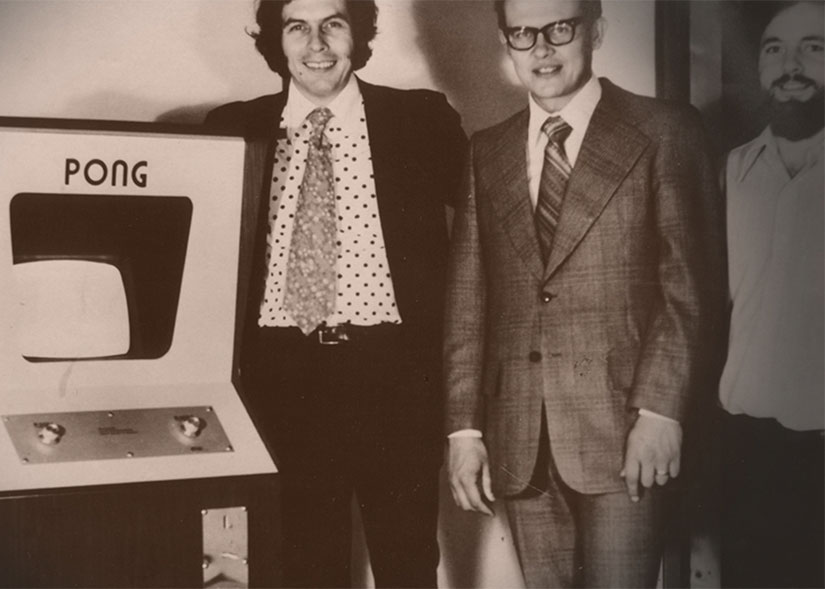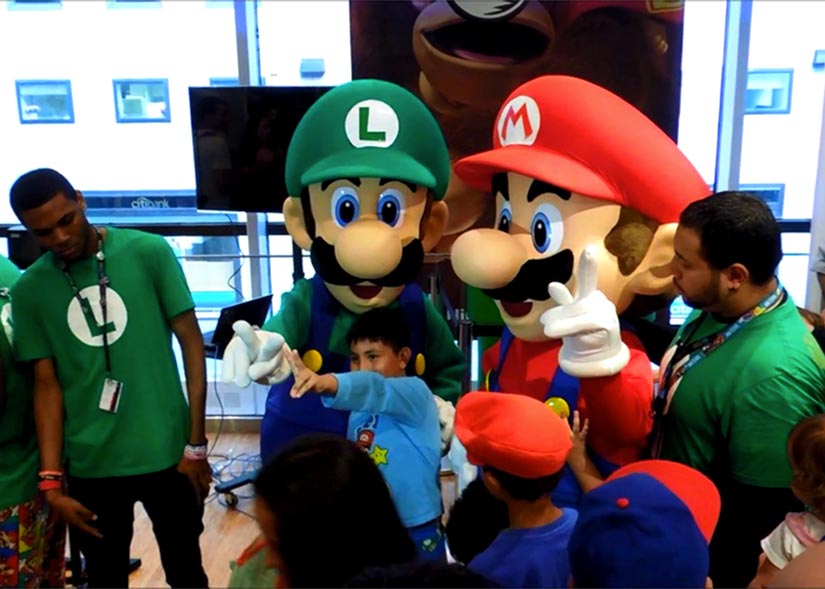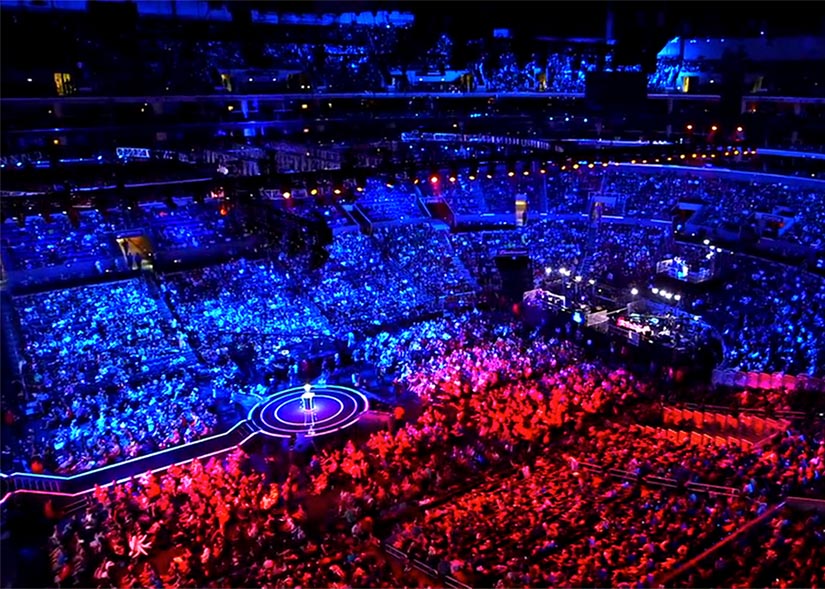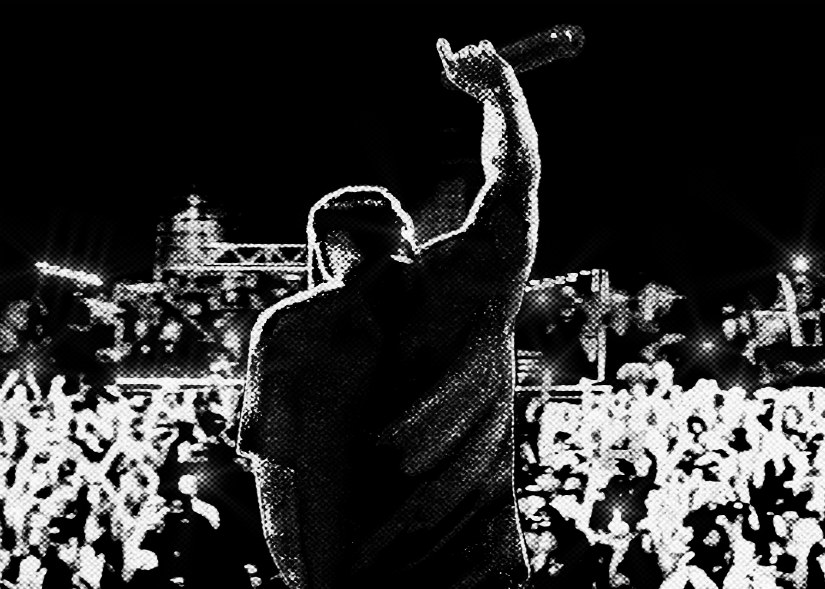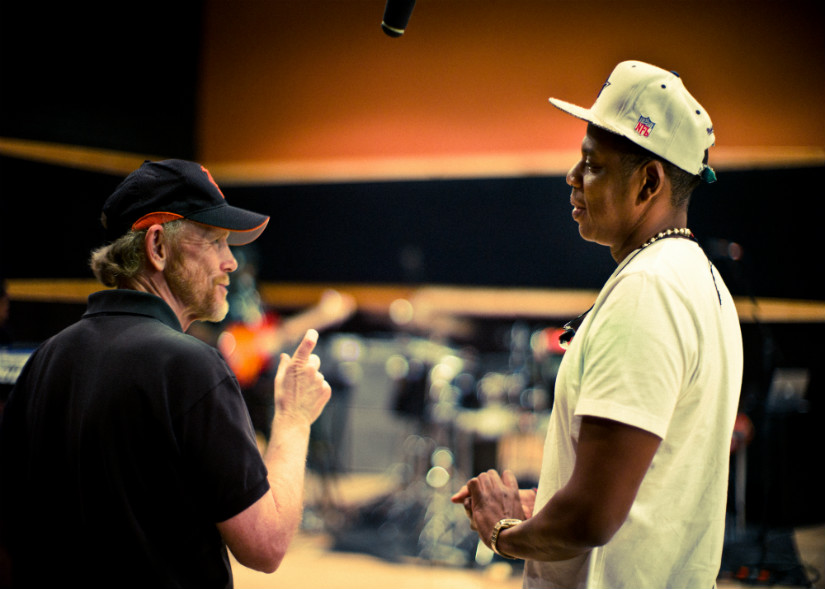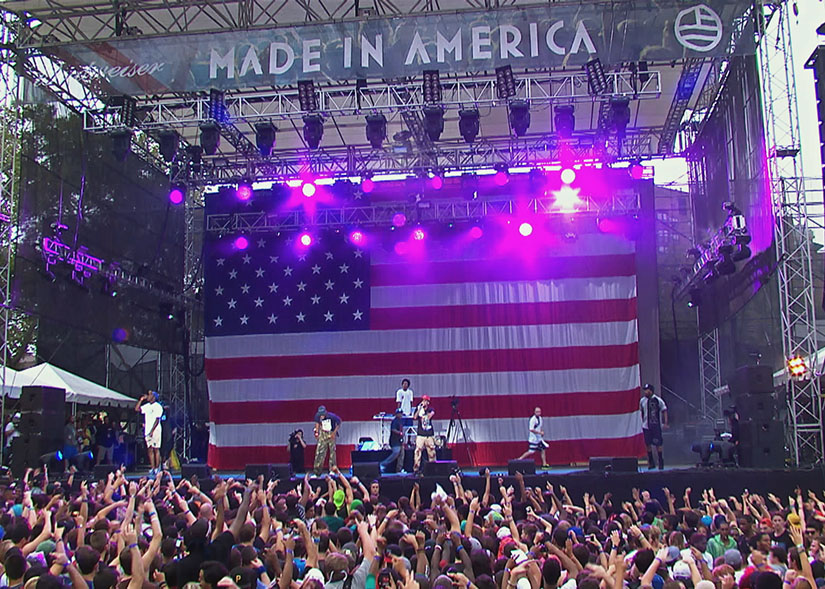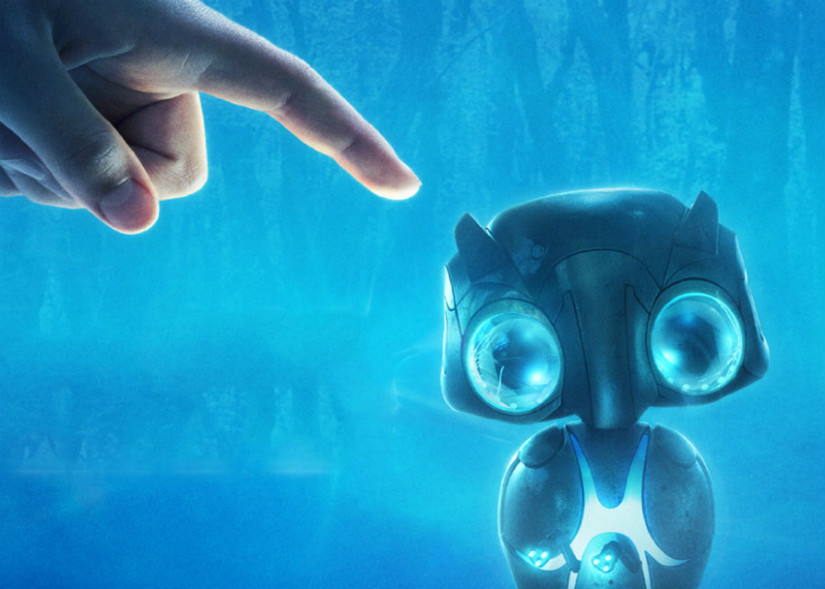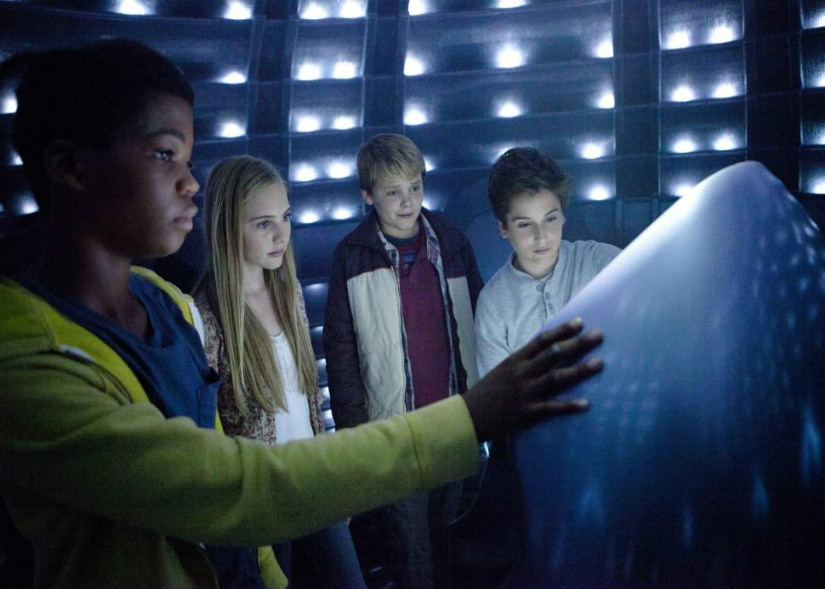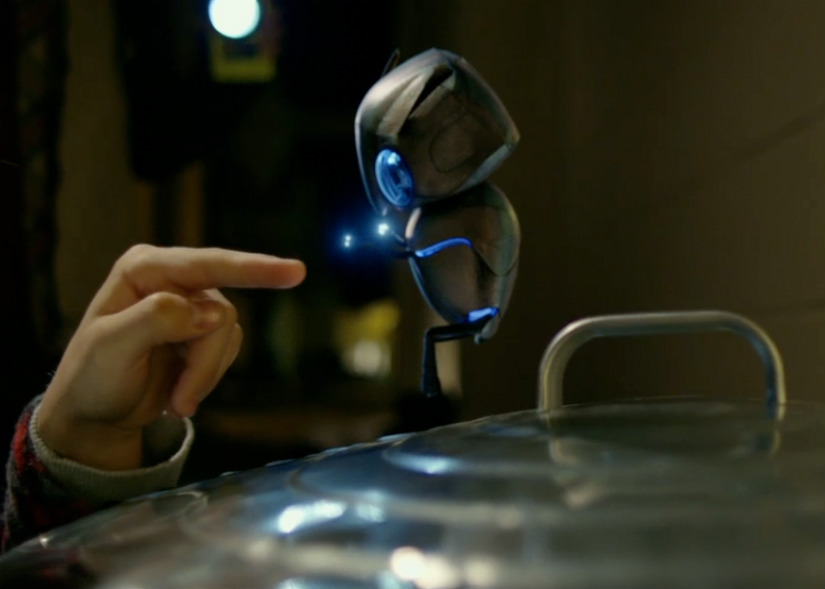[Review] The Longest Week
The Longest Week
Director: Peter Glanz
Rating: PG-13
Release Date: September 5th, 2014 (limited release)
Conrad Valmont (Jason Bateman) is a near-40-year-old manchild born with a silver spoon in his mouth. After his parents left for a cruise that has lasted for more than 30 years, Conrad was left to grow up under the pampered care of his estate's caretakers, resulting in a case of arrested development (heheheh). When his parents decide to get a divorce, they cut off Conrad's allowance, leaving him to fend for himself with no money or job, resulting in him turning to his only friend, Dylan (Billy Crudup), for help. Unbeknownst to Conrad, a beautiful woman whom he met on the train, Beatrice (Olivia Wilde), is Dylan's current crush. Despite agreeing not to make a move on her, Conrad pursues a relationship with Beatrice, threatening to destroy the only friendship he has. However, the relationship is built on a foundation of lies as Conrad has simply kept up the appearance of his wealth rather than come clean to Beatrice. In the span of a week, Conrad loses his inheritance, risks a falling out with his friend, and falls in love all at once.
[youtube id="Qwu51SYfQQs"]
The Longest Week honestly feels like a Wes Anderson film. However, whereas Wes Anderson films are able to mix whimsical elements with deep, fully-formed characters, The Longest Week feels hollow. Wes Anderson films always feature protagonists with wealthy backgrounds finding themselves in fantastical situations in wholly entertaining ways. The Longest Week, however, takes the Wes Anderson brand of storytelling and affluent characters without the whimsy, creating a story that feels like a copycat rather than its own film. The largest perpetrator is the dialogue throughout the film. Conrad and the rest of the characters will these one-liners or quips that are so dry and bland, yet are delivered stone faced with no real understanding of the absurdity behind the words. Could this be a reflection of the characters' affluence and detachment from real human interaction? The argument is definitely there. However, it smells too much like a Wes Anderson ape rather than a character building motif for the film itself.
Despite my issues with the film as a whole, I can't ignore the performances given by the cast. While Bateman might feel a bit typecast, he's definitely familiar with this type of character (morally ambiguous, somewhat likable jerk), and his comfort in the character type always helps his performances. Crudup and Wilde also deliver solid performances in their roles. However, the best performance in The Longest Week was also the most underutilized. Jenny Slate (Obvious Child) plays a minor role as Beatrice's friend, Jocelyn. While she's somewhat a part of the same circles as Conrad and the others, also exists outside of it. She's not wealthy like the others, is still in school and lives in a dorm, and actively critiques the pretentious nature of their lives without being pretentious in doing so. Her character would have served as the perfect foil to the wealth and grandiose of the other characters as a means for the audience to relate better to the film through her, but it's unfortunate that she only served as nothing more than a minor plot point.
The Longest Week is a poor man's Wes Anderson film. It attempts to copy that director's charm, but doesn't quite match it... or even come close. Jason Bateman fans might enjoy the film, given the film's typical "Bateman protagonist." However, anybody else looking for something more are better off looking elsewhere for their weekend movie fix.
[Review] Breastmilk
To be honest, I'm out of my element with this one. I'm at that age where all of my friends are starting their families, and being a single guy surrounded by married couples and kids has been a huge change of pace from my early 20s. Lately, I've been on the receiving end of parenting from who I consider to be a "Super Mom," getting a very detailed perspective on child rearing from a maternal point of view. In saying that, I felt like watching Breastmilk, a documentary on breast feeding, would be a more formal extension of those conversations. I didn't exactly get what I was looking for... then again, I don't really know what I was trying to get out of a documentary on breast feeding.
[youtube id="eNMFaYetTxA"]
Breastmilk
Director: Dana Ben-Ari
Rating: N/A
Release Date: August 5th, 2014 (Purchase Here)
Breastmilk follows a handful of women through their first year of motherhood, linked together by the topic of breast feeding. Based on my external conversations on the subject, I know that breast feeding is very important and nutritious for newborns. However, I don't really know why. I was hoping that Breastmilk would illuminate the pros and cons of breast feeding... but it doesn't do that. In fact, where most documentaries will have a stringent narrative (complete with a narrator guiding the documentary along), Breastmilk follows a loose outline over the course of the year, keying in on specific points relating to the trials and hardships of breast feeding.
Without the proper background information, I don't know why women choose breast feeding over formula. Breastmilk does hone in on the emotional and psychological connection a mother has with her child through breast feeding, but I was expecting a more scientific explanation for it. I really love loose narratives in documentaries, as it lets the subjects (and editors) set the tone for the films; however, I guess I just had too much of an expectation that, ultimately, can't be wholly held against director Dana Ben-Ari.
In saying that, I'm obviously not the demographic Breastmilk was targeting. I think the documentary would be a great supplementary tool for expectant mothers to see what breast feeding is like over the course of a baby's first year alongside the standard texts recommended by doctors. However, it doesn't inform or educate as much as I think it could have. As a single male in his late-20s, I guess what I expected were first-hand, entertaining lessons on breast feeding directly from first-time mothers. Instead, I got inundated with stories about latching, inabilities to produce excess breast milk, and more. While I loved learning about the other aspects to breast feeding, I still felt slighted not truly being explained the benefits of it in the first place.
[Review] Life After Beth
[This review originally appeared as part of our Sundance Film Festival 2014 coverage. It is being re-posted to coincide with the film's theatrical release.]
Life After Beth
Director: Jeff Baena
Rating: N/A
Release Date: January 19, 2014 (Sundance)
Saying goodbye to a loved one is never easy, especially if the circumstances are tragic. However, given a second chance at life, anybody would accept the situation, right? In Life After Beth, writer/director Jeff Baena uses a zombie uprising as the premise behind is romantic comedy about Zach (Kill Your Darling's Dane DeHaan) and Beth (The To Do List's Aubrey Plaza) as a young couple torn apart following the latter's unfortunate passing. Will a promise to make things better the second time be enough to overlook the elephant in the room concerning Beth's return?
After bonding with his ex-girlfriend's father, Murray (John C. Reilly), Zach slowly begins his journey to recovery. For reasons never explicitly explained, Beth seemingly returns from the dead. With a new lease on love, Zach does everything in his power to ensure the relationship goes smoothly. However, as more time after Beth's return passes, she begins to act out, coinciding with the emergence of more dead people.
Simply put, Life After Beth is an allegory for moving on after the end of a relationship. Again, while it's never explained why Beth's (and the rest of the dearly departed's) return is feasible, I think there's an underlying connection to his "connection" to her. In a minor subplot (which, in retrospect, is perhaps the most important of plot turns), an old friend of Zach's, Erica (Anna Kendrick), appears. As they catch up, Beth's condition worsens as she flips between being Zach dependent (relationship-wise) and Zach dependent ("zombie eat brains"-wise). It's interesting subtext, but unfortunately, not enough to hold the rest of the film up.
DeHaan is one of the most talented up and coming actors of this generation, yet his talents are never fully realized in Life After Beth. The film could have been the perfect breeding ground to illustrate his comedy (as he's mostly known for his dramatic roles), but it never comes to fruition. In contrast, Plaza fits well into the film's mold, easily playing both girlfriend and zombie with her patented deadpan, slacker-esque tone. The entirety of the film, however, is low on laughs. Oftentimes, it grasps for low hanging fruit or easy jokes that just aren't all that funny.
[Review] Wish I Was Here
[To commemorate the limited theatrical release of Wish I Was Here, we are re-posting this review of the film from this year's Sundance Film Festival]
Wish I Was Here
Director: Zach Braff
Rating: N/A
Release Date: January 18, 2014 (Sundance)
Almost exactly 10 years after Zach Braff's surprise directorial debut won over both Sundance audiences and general film audiences, his sophomore feature, Wish I Was Here, premiered amidst a wave of excitement and controversy. Last year, the actor/director opened a Kickstarter campaign to fund Wish I Was Here and was met with backlash due to the decision and perceived notion that a "millionaire" shouldn't ask for public funding. Nevertheless, the pre-production of Wish I Was Here is but a footnote and not the focus of the film nor this review.
What does matter is this: 10 years after Garden State surprised audiences and critics alike, was Braff able to strike lightning with his sophomore effort, or was all of the good will that resulted from Largeman and Sam's whirlwind romance the pinnacle of Braff's writing and directing abilities? Read on and find out.
Aidan (Braff) and Sarah (Kate Hudson) are a couple living in LA with two kids, Tucker (Pierce Gagnon) and Grace (Joey King). Sarah supports the family while Aidan struggles to find work as an actor. His father, Gabe (Mandy Patinkin), also provides financial support, as well as pays tuition for the kids' enrollment in a Jewish school. However, when his cancer relapses and he gambles his money on a New Age treatment, Aidan is forced to homeschool the kids while juggling auditions. As Gabe's health begins to regress, Aidan's attempts to reunite his brother, Noah (Josh Gad), with their father go refuted.
Wish I Was Here has echoes of Garden State, especially with Aidan's fleeting success as an actor. While the previous film was a romance about discovering one's identity, Wish I Was Here is about family bonds. 10 years is a long time, and Braff's maturation as a director and storyteller show in the film. There are still a few distinct cues that Braff still follows (the most obvious being the music direction), which is welcome and familiar. However, some of the more ambitious touches in the film should have been cut. For instance, Aidan's noted as a daydreamer, illustrated by mixed live-action/CG scenes in which he imagines himself as a space explorer. These scenes are unwelcome distractions and detract from the story. The subplot involving Noah and his own self-discovery also feels rushed and not as fleshed-out as it could have been.
Wish I Was Here illustrates Braff's growth as an artist, and any fears of a sophomore slump were quickly dismayed. In saying that, the film feels very "safe." It doesn't outshine Garden State, but it isn't held back by it, either. There's definitely a sense of progression found in Wish I Was Here, both in Braff's writing and directing, and I wouldn't mind seeing him tackle both focuses head-on.
[Review] Boyhood
[To commemorate the limited theatrical release of Boyhood, we are re-posting this review of the film from this year's Sundance Film Festival]
Boyhood
Director: Richard Linklater
Rating: N/A
Release Date: January 19, 2014 (Sundance)
Richard Linklater is known for his style of filmmaking that focuses on the mundane. Conflict and narrative don't mean much to the writer/director, his preoccupations with film revolving more around the naturalistic approach to capturing real life and humanity. He's explored and experimented with cinematic techniques throughout his career, with the rotoscoping found in Waking Life and A Scanner Darkly to the long takes found in the Before trilogy being the most indicative of his interests.
However, Linklater raised the bar with his latest film, Boyhood. Shot over a 12 year period, the film is a linear exploration of a young boy's growth into an adult from the ages of 6 to 18 and the growing relationship he has with his father. It's epic in scope and, under the guidance of another director, might have bombed out early in production. Linklater's latest cinematic experiment blurs the lines between reality and fiction, narrative and documentary, and does so in a way that is never once intimidating or loses sight of its goal.
Boyhood follows the life of Mason (Ellar Coltrane) who, at the beginning of the film, is a six year old facing a sudden move with his mother (Patricia Arquette) and sister (Lorelei Linklater). Not long after arrival, the kids' estranged father (Ethan Hawke) re-enters their lives, promising to spend more time with them. The film then proceeds to track the next 12 years of Mason's life as he faces typical adolescent conflict such as girls, bullies, peer pressure, etc., to darker moments like his mother's abusive husbands. Each year is noted by little cues pinpointing which year the scene takes place in, mostly noted by audio cues of that year's popular songs.
Boyhood could be seen as a 12-year-long scripted reality show, not unlike the plethora of garbage infiltrating TV right now. However, the film is so much more than that. As Mason grows older, you can see how his younger self already had a sense of self-identity, and watching it manifest itself over the film's 164 minutes (yes, it's a long ride) is a gift. Linklater might have had an inkling of a narrative idea upon Boyhood's early beginning, but kept it flexible to adapt to Coltrane's life and how it progressed. In a way, there's a blurring of lines between when Coltrane began playing Mason and when Mason and Coltrane became one in the same.
What separates Boyhood from documentaries is that, despite the film's scope and approach, it's still very much a fictional narrative. The film represents a natural cinematic experience that's never once caught up by its artificial conflicts. I can't even begin to fathom the editing process Linklater and crew had to go through to boil down 12 years' worth of footage into a seamless feature; 164 minutes may sound like too much, but I personally didn't feel it one bit. What I did feel, however, was Linklater's patented focus on existential pontification is represented not only in Mason, but in the film's interesting approach; moreover, Boyhood retains a sense of nostalgia for the past decade, becoming itself a time capsule of '00s Americana.
Boyhood may not resonate with everybody, but it will certainly leave a lasting impression on every single person that watches the film. Linklater's ability to not only capture so much and have the ability to adapt every physical and emotional change within Mason/Coltrane into a cohesive fictional narrative is an achievement in and of itself. The film will be talked about for a long time, at first due to its interesting approach, but will hopefully be remembered by the sum of its parts.
[Review] Video Games: The Movie
It's hard to believe that the video game industry as it is right now has only been around for roughly 30 years. When compared to other major entertainment industries like music and film, the gaming industry is still fairly young. Yet, in spite of its relative youth, the industry has gone through the entire spectrum of failures and successes, but appears to be on a trajectory that will ensure it will continue to grow alongside the other staples of entertainment. Video Games: The Movie is a documentary that attempts to not only serve as a primer for gaming's history, but also sheds light on the culture surrounding the industry, the creation of video games, and the future of the industry.
[youtube id="s1u_oHGTJ-g"]
Video Games: The Movie
Director: Jeremy Snead
Rating: NR
Release Date: July 15, 2014 (VOD); July 18, 2014 (Theaters)
Like all documentaries, the subject matter is reliant on reporting the facts as entertainingly and informative as possible. Director Jeremy Snead doesn't cover every major release or news bit over the course of gaming's history, but he chose the most pivotal events, including the rise and fall of Atari, Nintendo's success serving as the rebirth of gaming, the growth of the industry alongside technology, and much more. At the same time, he also covers more than just history, as I pointed out in the introduction.
Snead was also able to amass a large cast of talent to interview for Video Games: The Movie covering many aspects of the industry from game developers and publishers to actors and entertainment personalities. His choice of interviewees are actually able to add strong input to the documentary outside of the typical "Video games are awesome!" Some of the major names of gaming like Nintendo's Reggie Fils-Aime and Atari's Nolan Bushnell are included, but also other notable names like Chronicle writer Max Landis and Scrubs stars Donald Faison and Zach Braff are also asked for their insight. The Goonies' Sean Astin also provides narration for the documentary.
However, there wasn't much insight from general gaming fans. Obviously, as a director intending to create a comprehensive documentary, the major names in gaming take priority over everyday fans. At the same time, a section could have been dedicated to regular fans sharing their input and experience. There are a few snippets here and there (with more scenes running during the credits), but a fan section would have been a great addition. At the same time, there's a lacking presence when it comes to conventions, both industry-run (E3) and more fan-driven (PAX). The omission doesn't hurt the documentary overall, but it's certainly a side to things that could have only helped bolster and shape the documentary a bit more.
Outside of the somewhat lacking fan input found directly in the documentary, Video Games: The Movie accomplishes a set goal Snead set out to achieve: create a comprehensive product illustrating all aspects of gaming that isn't solely entertainment. The industry, after all, is a business, but games themselves also serve as collective works of art from those working on the games to those actually playing them. Snead's documentary was successful in not only addressing the stuff beyond surface level, but also illustrating how gaming has grown from a small fandom looked down upon by the bigger heads in entertainment to a widely-successful and accepted medium.
I'm obviously biased when it comes to video games, having been a gamer for more than 20 years. In saying that, I've seen my fair share of video game documentaries, read articles and essays detailing the growth of the industry. However, Video Games: The Movie is the one project that was successful by encompassing what makes video games so fun and entertaining, but also sharing more about the culture surrounding games beyond the business and technical elements.
[Review] Made in America
Ron Howard has always been an interesting director. His projects range anywhere from How the Grinch Stole Christmas to A Beautiful Mind and The Da Vinci Code. Coming off his successful project Rush last year, I was curious as to what he'd direct next. To my surprise it was Made in America, a documentary about Jay Z and his Made in America music festival.
With Howard's track record (filled with both spectacular hits and misses), I was worried about how this doc would turn out. Would we get an in-depth look at Jay Z and his career? Would we get the bare minimum to please music fans? Well, the answer is more in the middle.
[youtube id="N59Jk8XsLLI"]
Made in America
Director: Ron Howard
Rating: NR
Release Date: July 11, 2014 (Theatrically)/July 22, 2014 (VOD and DVD)
Made in America documents Jay Z and his organization of the Budweiser Made in America music festival. Through interviews with artists like Janelle Monae, Tyler, The Creator, The Hives, Rita Ora, Eddie Vedder, and Jay Z himself, the doc hopes to better understand and frame the true meaning behind the "American Dream" while celebrating music and what it does to better everyone's lives.
The most interesting aspect of Made in America is how it's filmed. In an intelligent move, the grassroots like camerawork (using only one or two handheld cameras) clicks with the film's thematic resonance. The phrase (and its mentality) "pulled up by the bootstraps" is used quite often through the interviews in order to emphasize that each artist worked through tough times to find their current success. This wouldn't have worked so well had the production quality of the film been any higher. Hilariously enough, with not a lot of care put into the filming process, a few of the walls these artists have are broken down. For example in an interview with Tyler, The Creator, you can clearly see a boom mic in the background for a few seconds. Rather than clean up that scene in the final cut, it's left in so the interview has more character. The interviews are full of little imperfect touches like these.
While that imperfectness might not make for a visually compelling documentary, the relaxed nature of the film makes it easier to sit back and enjoy rather than absorb every bit of information. To emphasize this, the interviews are cut in between bits of the festival's performances. Capturing the overall essence of the festival, these bits are fun, aren't too impeding, and the cuts to Jay Z hard at work backstage are a nice change of pace. Unfortunately, this also means there's a lack of solid structure. It becomes needlessly difficult to discern the underlying message of the documentary as it jumps around and loses focus quite a bit. The doc can take you anywhere from an interview with D'Angelo to Run (of Run DMC) cooking eggs to Jay Z taking a tour of his childhood home. As Jay Z is the only one who gets a hefty amount of screentime, he's the only one we learn anything about. We get a brief refreshing bit of Janelle Monae's past, but everyone else gets two or three minutes and are then gone forever. While that might be acceptable for this doc's demographic, it's not going to be a draw for those who aren't so in tune with the music industry.
But what is here is entertaining to listen to. Howard has a few regular folks with unique perspectives (basically the antithesis of the "Rags to Riches" success stories presented by the artists) interspersed, and they're so engaging, I wish we would've got more of them. One in particular is a young roadie who's barely making ends meet, and has to live in a house with many other people in order to make rent. He gets two brief scenes, and his story remains inconclusive. I suppose that may be a criticism of the faulty optimism of the American Dream, but it completely clashes with the vibe of the rest of the film. It just begs the question of why bringing up the idea in the first place is necessary when it isn't used for anything of substance.
But Made in America accomplishes what it set out to do. An entertaining pop documentary with surface level information. That's not necessarily a bad thing here as the format of the film will appease fans of these artists, but it's extremely alienating for those outside of the bubble.
Made in America is not going to bring any new fans, but it's a fun party for those willing to attend.
[Review] Earth to Echo
I've never been a huge fan of E.T. The Extra-Terrestrial. Sure it paved the way for lighter science fiction films (and help popularize TV shows like Alf, Mork & Mindy, and most of later 80s wacky sitcoms), but for as much wonder the film had, E.T.'s design itself is dreadfully ugly. As a child I wasn't a fan of the walking poop monster, but I liked what the film represented. It encapsulated childhood with a point of view kids really could connect with. But through the years, science fiction films have lost that zazz, that childlike mystery. Every film about aliens and kids now is a cynical mess that's tantalizing in theory only.
That's why Earth to Echo piqued my interest. A found footage film about a group of kids stumbling on an alien? And it's only rated PG? That meant I'd be able to enjoy it without waiting for the other cynical foot to drop. Thankfully, Earth to Echo delivers on that promise.
[youtube id="JMlcdEtAiBA" autoplay="no"]
Earth to Echo
Director: Dave Green
Rating: PG
Release Date: July 2, 2014
Earth to Echo is about a group of neighborhood kids whose lives are going through some dramatic changes. Alex (Teo Halm), Tuck (Brian "Astro" Bradley), and Munch (Reese Hartwig) are best friends who are being forced to separate when they're neighborhood is being torn down for a new highway. When a mysterious electronic signal makes their phones "barf," the trio decide to use their last night all together to track down where it came from. When the trio find the source of it all, a small electronic alien they name "Echo," the resulting adventure leads them on the wildest night of their young lives.
I'm usually not an advocate of found footage films due to wild perspective changes and excuses for shoddy work, and unfortunately, Earth to Echo isn't a strong argument for the genre either. Although the reason Tuck carries around a camera the entire film makes sense (he's a kid with a YouTube account who wants more hits), it leaves so many questions unanswered. How can a 12 year old kid afford multiple GoPro cameras? How can he afford spy glasses with cameras built into them? Sure there's a nice kid friendly logic that permeates through the film (suggesting you're not supposed to pay close attention to this stuff), but it's these little technical details that take you out of the moment. It's hard to stay invested in a scene when the POV is constantly shifting between the many cameras these kids have at their disposal. The worse part of this is there's an explanation for this that adds a nice layer of realism (the film is Tuck simply editing all of his videos together on his desktop), but it's completely dropped shortly after it's brought up.
To be fair, the real bulk of the film isn't concerned with how the story's being filmed but the content. And on that front, Earth to Echo is just wonderful. Although the dialogue can be a bit heavy handed when delivering plot details (there's a scene where Tuck just repeats the next beat of the story over and over until the kids actually do it) and it has something against silence (no room to soak in the atmosphere as someone needs to say something at all times or they explode probably), these kids all sound and behave like real kids. There're subtle bits like when Tuck is filming a particularly interesting scene he yells, "Hey Munch, get out of my shot!" or every one of Munch's lines being delivered with a lovable awkwardness (such as when they lie to their parents about their plans for the evening). And Brian "Astro" Bradley is not only a former X-Factor contestant, he can act. The script doesn't admittedly ask much of him, but he's miles ahead of the other three kids in the ensemble (with Ella Wahlestedt being especially awful).
Earth to Echo really captures the essence of discovery. The plot may only be thinly stitched together fetch quests, but it's entirely nostalgic because of its sincerity. Reminiscent of E.T. The Extra-Terrestrial, the alien Echo just wants to get home (and it's much better designed), and even when generic government officials step in (complete with wonderfully awful dialogue), the goal remains the same. It's light hearted, the stakes are only as big as a PG rating (or a kid's narrow point of view) allows, and it follows through on one of the bigger plot lines set in the beginning. It's not always acted out or filmed in the best manner, but the story is genuinely entertaining. It's rare that I get swept up in a movie like this, but I sure love when it happens. I just wish the rest of the film was as good as Echo's animation is. Seriously, the visual effects are pretty great.
Earth to Echo is full of more problems than I'd personally like, but it's not necessarily bad. It's something to watch with the kids that won't bore you to death, will entertain you as long as you don't constantly question why things happen, and it's a movie where kids are kids instead of shells full of lines written by a 40- year-old man.
Earth to Matilda, this is a good movie.

